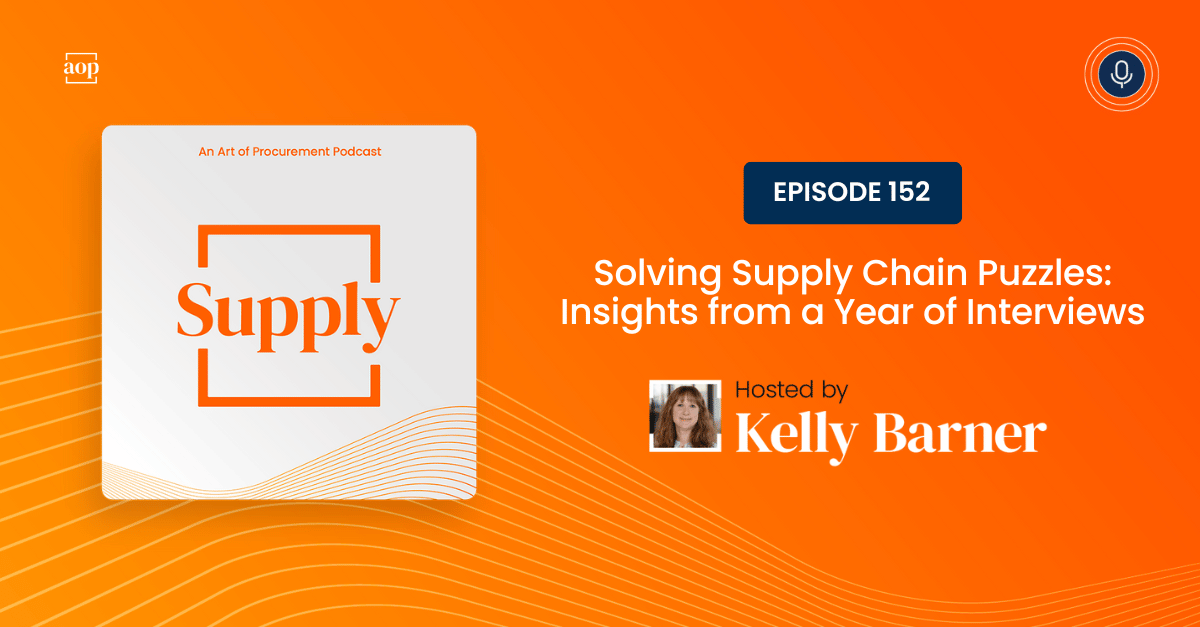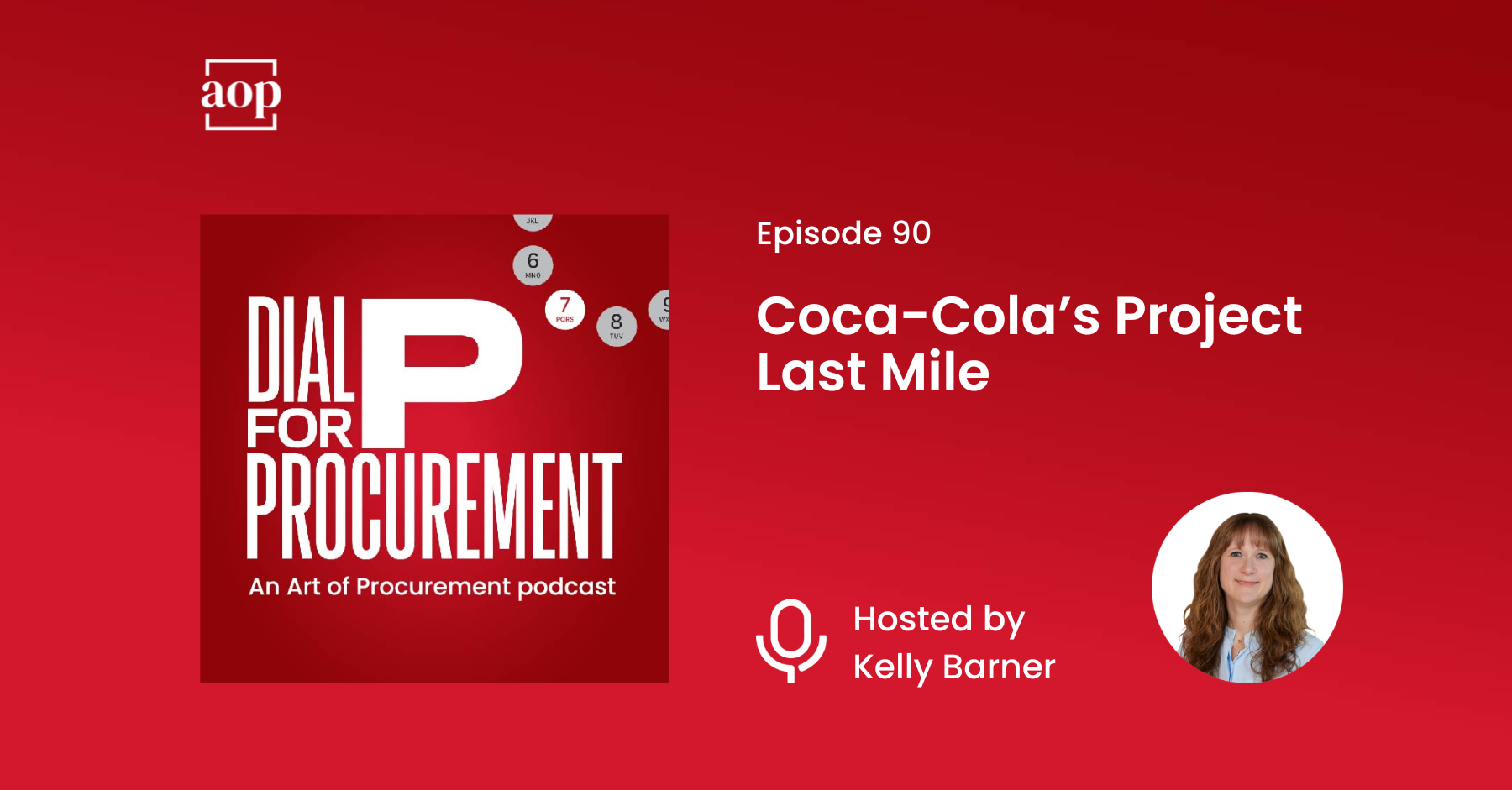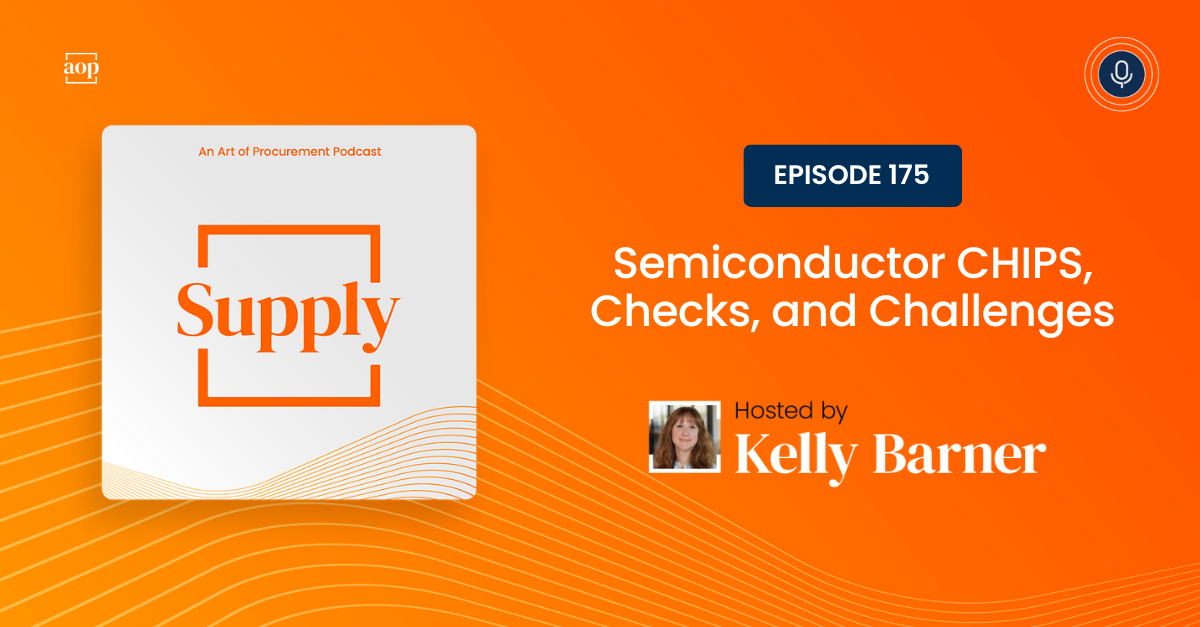
As we prepare to close the books on 2024 and open the brand new year that will be 2025, it's interesting to look back at the stories that fell during this one 12-month period.
There are usually a few stories where I'll think, wait a minute, that was this year? When you look at the whole list of episode topics together, it is incredible to see all of the stories that rose to prominence in our conversations, our research, our decision-making, and then, as all stories do, eventually fade from ‘above the fold’ attention.
There are also a few stories, in my opinion, that are going to feature prominently in the early part of 2025.
EP 101: Weight and Value x Distance: Studying Global Supply Chain Use and Cost
This was the top downloaded solo pod of 2024 - which is impressive given how challenging the subject was.
The paper How Far Goods Travel: Global Transport and Supply Chains from 1965-2020 taught us that more goods are going further distances as they move towards the final customer. Given the global system that has formed around an emphasis on efficiency, international relationships are more important than ever.
Put another way, geopolitics can have more of an impact on trade and the economy than ever before, and yet, thanks to technology, our supply chains are more resilient than ever.
If geopolitical dynamics start to change where companies and countries spend their money, it could reshuffle the whole system - changing the transportation costs for companies and countries that were willing to keep their money where it was.
If enough supply chains change their sourcing and manufacturing paradigm, the whole system will need to change. Starting to think about that now expands the number of qualified options available to us and may even allow us to get ahead of the game.
EP 100: High Stakes in the Red Sea
Since the October 7th 2023 Hamas-led attack on Israel, Houthi militants have been attacking ships bound for the Suez Canal, causing destruction and massive, impactful, expensive re-routing by ocean freight companies. These attacks were initially limited to ships with Israeli connections, then Western ties, before being targeted less discriminately.
Now, however, conditions in the region have begun to change.
The ouster of Assad in Syria on December 8th is thought to be a sign that Iran (and their funding), is simply spread too thin. As recently as December 6th, Hamas has expressed a renewed desire to enter into peace talks with Israel, and discussions are being mediated by Qatar in Egypt.
If a ceasefire is achieved, will the Houthis continue the fight? That question remains to be answered… but it is definitely fair to ask.
EP 114: Examining the Practicality of the EV Truck Mandate
Will the EV truck mandate, which requires manufacturers of heavy-duty vehicles to reduce overall emissions by mandated percentages starting with the 2027 model year, be upheld after Donald Trump takes office on January 20th?
There were always questions about how feasible, welcome, and enforceable the mandate was, now we can question whether it will happen at all. I don’t have any quotes from Trump to offer as evidence, but we can point to his opposition of EV mandates for passenger cars and focus on the cost of energy as hints to how he may feel.
According to the EPA, “The standards will avoid 1 billion tons of greenhouse gas emissions and provide $13 billion in annualized net benefits to society related to public health, the climate, and savings for truck owners and operators.”
As wonderful as that sounds, there are real questions about the practicality of this change - especially through a Federal government mandate. The mileage range of the trucks is limited, the trucks are more expensive, and charging infrastructure is woefully lacking.
Design work for 2027 model year trucks must be underway. It will be interesting to see what manufacturers do: move forward assuming the rule will take effect or bank on a change of direction?
EP 126: De Minimis: Supply Chain Trifles the Law Should be Concerned With
Another story ready to re-take headlines has to do with the de minimis provision being used by companies like Shein and Temu to send boxes directly to consumers, skirting inspections and import duties in the process.
De minimis is a Latin phrase meaning “the law does not concern itself with trifles.”
The de minimis provision is supposed to simplify trade so that packages worth less than $800 can be sent to U.S. consumers from overseas. With the rise in global ecommerce, however, this provision - or loophole - is proving to be far more than a trifle’s worth of trouble
The Biden Administration has indicated a desire to end the provision, which would close the loophole these packages are moving through and also increase the reporting requirements Temu and Shein (and others) are subject to.
While Shein, Temu, and now Amazon make exhaustive use of the de minimis provision, there are a whole range of small companies that need it to stay in business. They don’t leverage it, they just use it. If the provision goes away, they will be hurt, unless some kind of targeted exception is left in place for them.
File under: this is why we can't have nice things.
EP 138: East and Gulf Coast Port Strike – Part 1
Right before the U.S. Presidential election, the International Longshoremen’s Association went on strike, affecting East and Gulf Coast ports. An extension was agreed to, but it will expire on January 15, 2025, exactly five days before Donald Trump retakes office.
The buzz has restarted around this story, and so far, Trump seems to be siding with the union.
After meeting with ILA President Harold Daggett, he posted on Truth Social, "The amount of money saved is nowhere near the distress, hurt, and harm it causes for American Workers, in this case, our Longshoremen."
The union is taking a hard line on automation; they don’t want any. Not even automatic gate or door openers.
Automation is something we’re all looking at with a mix of enthusiasm and wariness. We’re also fresh off of two years of high profile union strikes, colorful posturing, and active participation in politics.
Trump’s nominee for Labor Secretary is former Rep. Lori Chavez-DeRemer. She is viewed as being uncharacteristically pro-union for a Republican. If she is confirmed, it may create a bit of internal friction in the Cabinet, with pro-business on one side and pro-labor on the other.
There is never a dull moment in supply chain. There are no signs that will change in 2025, and since we already know some of the key issues and stories to watch, it probably won’t take long for the developments and surprises to roll in.




